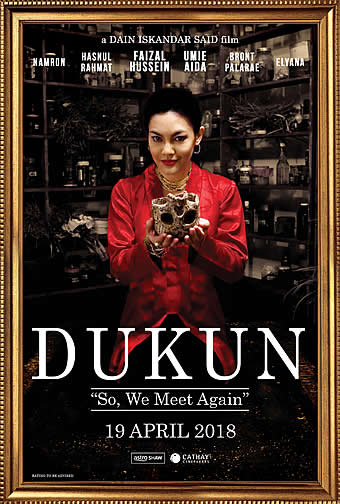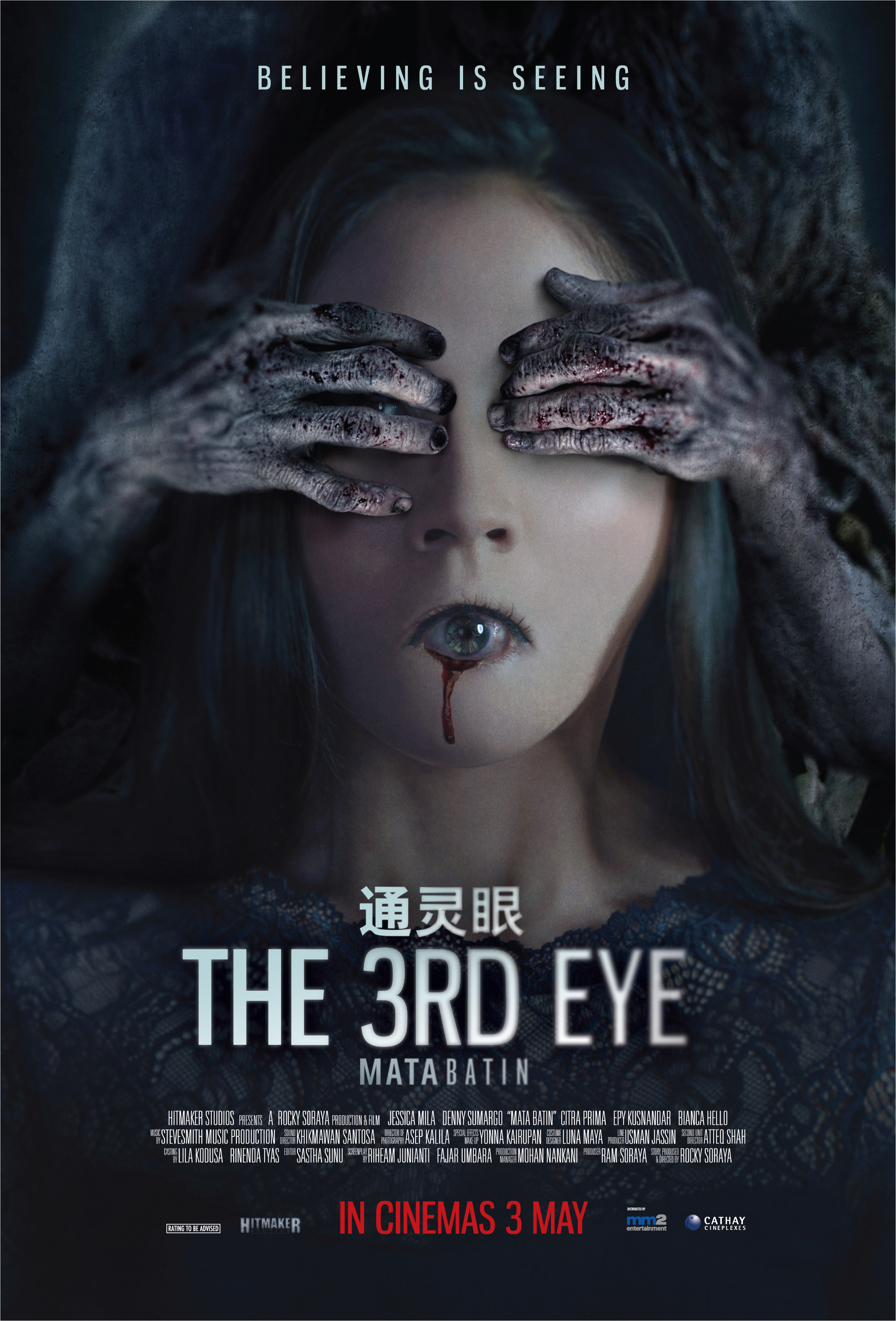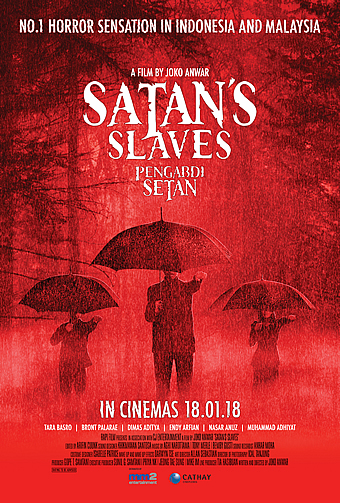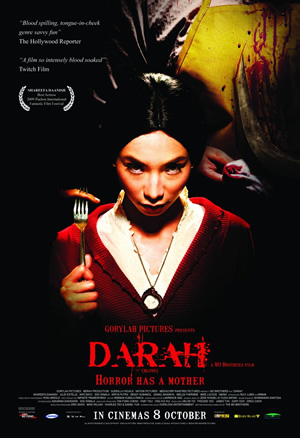DUKUN (2018)
Genre: Horror/Thriller
Director: Dain Iskandar Said
Cast: Elyana, Umie Aida, Ramli Hassan, Faizal Hussin, Sofi Jikan, Bront Palarae, Hasnul Rahmat, Adlin Aman Ramlie, Nam Ron, Chew Kin Wah
Runtime: 1 hr 46 mins
Rating: PG13 (Disturbing Scenes)
Released By: mm2 Entertainment
Official Website:
Opening Day: 19 April 2018
Synopsis: It’s a tale about the lure of riches, power, eternal youth, beauty and the blood one must spill to achieve this. Dukun centres around a conflicted lawyer, Karim, who is searching for his lost child, Nadia. His desperation leads him to be entangled with an alleged murderer, Diana Dahlan, who links the disappearance of Nadia to darker secrets that could cause Karim to lose everything.
Movie Review:
Had it not been banned by the Malaysian censors for a decade, the supernatural horror ‘Dukun’ probably wouldn’t have been released to as much fanfare. But despite its notoriety, those looking for the sort of graphic horror that Southeast Asian cinema has been known for will probably be disappointed – compared to the likes of the Mo brothers’ ‘Macabre’ or even the more recent ‘Satan’s Slaves’, writer-director Dain Iskandar Said’s feature filmmaking debut is a much visually tamer affair, comprising some brief scenes of dismemberments, contortions and cannibalism with little gore and offscreen violence. What’s a lot more interesting – and we suspect the reason why it was temporarily prohibited in the first place – is its debate between Islam and ‘black magic’, especially how it alludes to the authority of the former deferring to the powers of the latter.
Arguably, if this were the core of the film, it may not even have seen the light of day today. So rather than discuss it head-on, Said approaches it from the perspective of a legal and police procedural surrounding the trial of a female shaman Diana Dahlan (Uime Aida) accused of the gruesome murder of a prominent businessman. The verdict of the said trial is known right from the start, as the opening prologue shows a smug Diana in a tight dress and red lipstick readying herself for her impending execution by hanging in jail. Instead, the ensuing dual narrative chronicling both the judicial proceedings and the investigation around that murder seeks to establish the whydunnit, the former through a series of witnesses that the prosecution has lined up to take the stand against Diana and the latter through further probes that the two lead detectives commence into a string of similar murders in the past.
Frankly, the fractured chronology doesn’t exactly add up, especially how the case against Diana would go ahead if the police had not even concluded if she was responsible for other murders with the same modus operandi. Notwithstanding, the story remains engaging because of its flirtation with the supernatural, emerging eventually as a cautionary tale on exploiting these means in service of one’s ambition and/or lust for power. While not quite so explicitly emphasized throughout the film, the incongruence and even irony of having such a case judged before a court of law is stated simply and succinctly at the end of the trial. It is also in this same vein that the authority of Islam and the laws of the dark arts come under scrutiny, and although the closing quote makes it quite clear which side the film wants its audience to come down on, the apparent tension between the two is not fully addressed, leaving one to ponder just how such ancient practices sit alongside modern-day mainstream religions.
That conflict is given greater prominence in another parallel narrative which sees Diana’s lawyer Karim (Adlin Aman Ramliee) searching for his teenage daughter Nadim, who has been missing for the past six years. Though clearly engineered for narrative expediency, the film would have us believe that Karim crosses paths with Diana out of sheer coincidence after he approaches the police for help in locating her and is asked in turn to act as her lawyer in court. It is not hard to guess that, or how, he and his daughter’s fates are ultimately intertwined with that of Diana’s, so much so that she would gladly accept a guilty verdict and request that she be executed at the soonest possible time. There are hints of familial tragedy here – most notably that of a married couple who would do what is possible to realise their dream of having a child – but not quite fleshed out enough to be as poignant as it could or should.
Given the controversy surrounding the film, it is inevitably a let-down that ‘Dukun’ isn’t more provocative or sensational than it is, especially its treatment of the mystical and even unnatural. Then again, Said deserves credit for not indulging in excesses, opting instead for a grounded depiction of the occult. And just like its subject matter, Aida’s magnetic performance as a female shaman is deeply enduring, no less outstanding or powerful now as it was a decade ago. It is no coincidence that she is front and centre the bleeding heart and twisted soul of the film, and no surprise that her blend of seduction and menace is what will send chills down your spine long after the lights come up. As long as you set aside those expectations of notoriety, ‘Dukun’ should do just fine as an exploration of the disturbing, even unsettling, paranormal of close cultural resonance.
Movie Rating:




(It probably isn’t as shocking as its notoriety suggests, but this horror thriller of the occult still packs some disturbing, even unsettling, chills)
Review by Gabriel Chong
You might also like:





